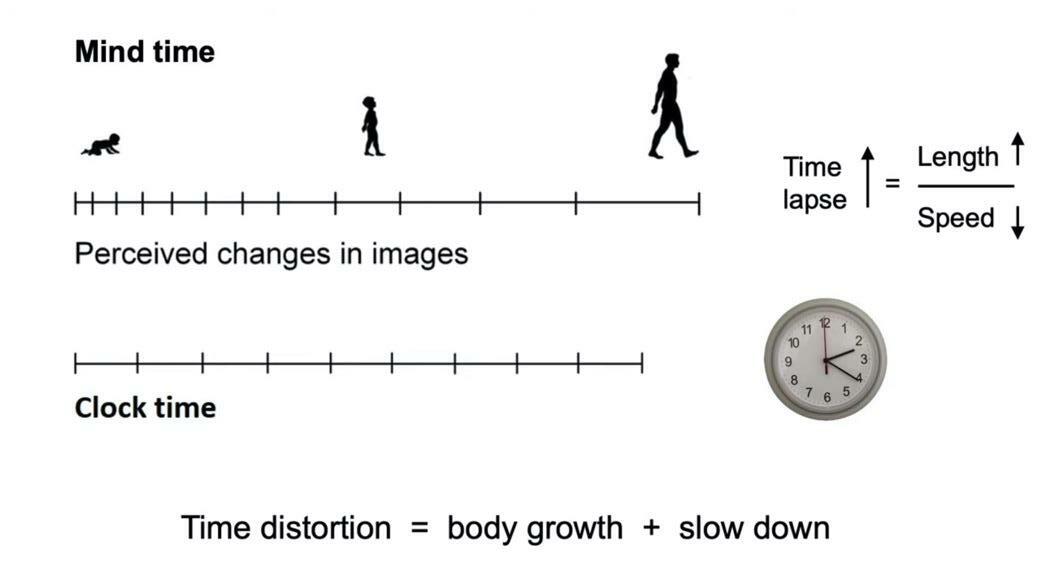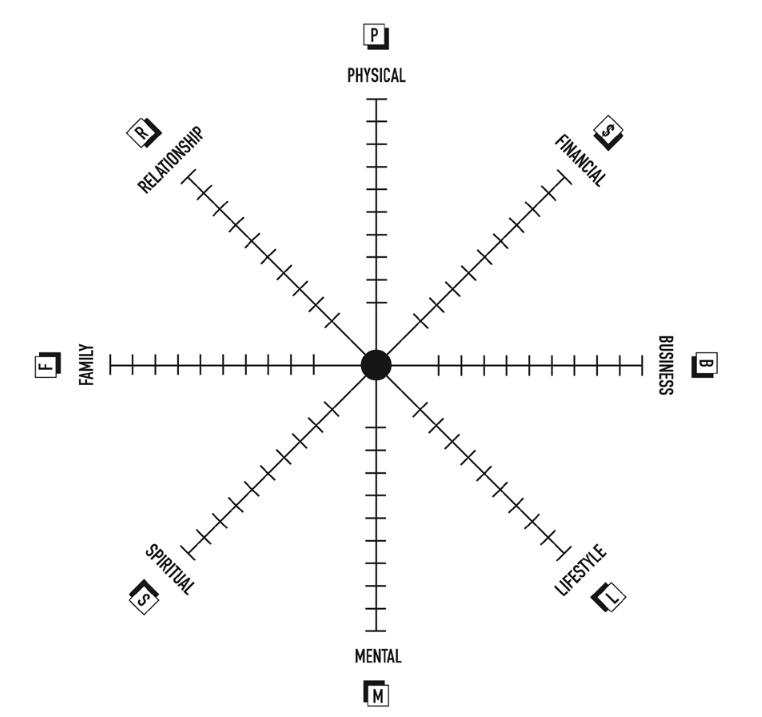
8 minute read
Why do the days seem shorter as we get older?
RACHAEL WOOD - BUSINESS DEVELOPMENT MANAGER Why do the days seem shorter as we get older?
Does 2022 seem to have flown by faster than ever? OR is this just my perception?
Advertisement
In younger years I recall older generations saying that time passed more quickly with age. I initially thought this was simply what all ‘older folk’ said. However, as 2022 is drawing to a close, everyone seems to be saying it, from fellow Generation X’ers through to Gen Z’ers alike.
Intrigued to know whether there is any science behind this perception, research led me to the paper “Why the Days Seem Shorter as We Get Older” by Professor Adrian Bejan, published online by Cambridge University Press in March 2019. He also presented a TEDx talk on the subject in February 2021.
He explains the reason for the phenomenon that time passes faster as we get older is because ‘mind time’ is not the same as ‘clock time’. Naturally, every individual living being has a different perception of the passing of time; their own ‘mind-time’ whereby the brain measures the passing of time based on changes in the configuration of visual images observed & mental images encountered. This mind time is based upon the simple equation:
Time Lapse = the length of distance mental images need to travel to reach the brain divided by the speed at which these messages travel. Both numerator & denominator are impacted by body growth or in other words, age.


In simple terms, as the body grows & develops with age these messages have further distance; longer & more complex neural pathways to travel to reach the brain. Also, as we age, the speed of message transmission decreases due to several transforming physical factors, including vision, brain complexity, and later in life, degradation of the pathways that transmit this information. In addition to this, body growth does not happen at a uniform rate and follows the typical S curve of being a slow-fast-slow pattern. Therefore as we mature the brain receives fewer signals in any same given period, hence the recognized distortion of time and the perception that time is passing more rapidly.
In contrast, in his paper he also refers to how some days appear to pass more slowly than others, explaining how these ‘slower’ days are often full of productivity, events, and memories of what happened. He goes on explain that “the productive days happen when the body and mind are rested, after periods of regular sleep, when in the morning you look in the mirror and you see a younger you, not a tired you. Athletes learn the hard way the correlation between good rest and the speed of passing time. Lack of rest & fatigue makes you miss plays, unable to anticipate, unable to see the ball before it arrives. While sleep walking, the game is over before you know it”

In an article entitled “Physics
explains why time passes faster
as you age” by Ephrat Livni, published January 2019, it’s explained how Bejan became interested in this phenomenon as a young athlete & member of a well-respected Romanian basketball team. At this time he noticed that time slowed down when he was well rested and that this enabled him to perform better. Not only that, but he could also predict team performance in a game based on the time of day it was scheduled. However despite all this he goes on to say that by following his basketball coach’s advice—sleeping well and living clean—we can alter our perceptions, which in some sense, slows down mind time.
IF time and indeed 2022 has passed so quickly, what next for
2023? One other counterbalance for the rapid pace of days, weeks, months & years passing by, is to ensure we make the most of our remaining time on this planet.
Do you have a clear plan for HOW you wish to do this? IF not, perhaps a review of the last 12 months is a good place to start?
Whilst business plans for the forthcoming year are typically started very well in advance of the 4th Quarter (in former Retail Finance roles I recall agreeing Budgets for the following calendar year by September latest), when you’re “all planned out” on business, the same dedication & attention to detail for plans of our personal lives can easily fall by the wayside.
Do you have a plan for the various aspects of your personal life, and if so, how much time & attention have you given it? Or do you just drift along, go with the flow & see what happens?
I will confess, in my younger years, I did not have a firm “life plan,” I was too busy enjoying and living life, taking it as it came and going with the flow. However, changes in my personal situation led me to review that strategy. For the last 10 years, I have made a concerted effort to plan for various aspects of my life, and lo & behold, this has proved to be effective.
Fig 2: “Living Your Best Year Ever” by Darren Hardy, 2012


This review of the prior year & plan for the 12 months ahead is based upon the Wheel of Life (source Living Your Best Life Ever, Darren Hardy) whereby you score 8 categories of your life on a scale of 1-10: 1 = least, 10 = most satisfied with this area of your life.
This exercise might feel a little uncomfortable, though remember there are no wrong answers. Be honest & truthful with yourself, even if the truth is painful or embarrassing. No one else needs to see your results & you will only succeed by being truthful with yourself. Once complete, plot your scores on the chart. Do you have an even wheel? Or do your joined-up points bear more resemblance to the nucleus of a white blood cell? Is your wheel giving you a bumpy ride? If you are interested in delving deeper into this, I highly recommend referring to “Living Your Best Year Ever” by Darren Hardy which includes a series of questions for each category to help you achieve a more accurate score.
I have followed this practice for several years now and am happy to report that whilst some areas remain stronger than others, what was originally an uneven, almost nucleus shaped wheel, has over the years evened out, enabling a smoother ride through life. My work with Aspen Waite has played a part in balancing my wheel, enhancing more than the obvious business/career category, it has resulted in a more enriched - fulfilling & rewarding life, and for that I am profoundly grateful.
“Life without balance can cost you your relationships, your health, your wealth & your ultimate happiness. So, find things to motivate you from all areas of your life. Your success
depends upon it” Jim Rohn.
Once you have your wheel, think about your ideal level for each category, brainstorm each category covered & set balanced goals, and commit them to paper. Anything that is physically written down, rather than being just a thought/idea in your mind, has a better chance of being achieved.
Ensure your goals are SMART goals - Specific, Measurable, Attainable, Realistic, Timely and shortlist them to three headline or banner goals in each category. Make an action plan to achieve these goals, and importantly, review your progress against these goals on a regular basis.
- Napoleon Hil
Wheel of Life Summary: 1. Brainstorm your life.
Start by brainstorming the eight categories of your life that are important to you 2. Write these categories on the diagram, one on each spoke of the life wheel 3. Assess & score each area on a scale of 1-10 4. Mark your scores on the wheel & join up the dots 5. Review the shape of your wheel and think about your ideal level in each category 6. Set SMART goals to start working towards achieving your ideal levels 7. Take Action to achieve these goals 8. Review your progress at regular intervals; monthly, quarterly, bi-annually or at very least in 12 months’ time 9. Enjoy the process & celebrate your progress 10.Enjoy the results!

If you have made it this far, thank you for your time & attention. I hope it has been of some interest & inspired you to review your 2022 and start thinking about what you really want from life in 2023. If you want a different outcome, NOW is the
time to start doing something differently.
REFERENCES:
1, “Why the Days Seem Shorter as We Get Older” by Professor Adrian Bejan, published online by Cambridge University Press in March 2019.
https://www.cambridge.org/core/ journals/european-review/article/ why-the-days-seem-shorter-aswe-get-older/2CB8EC9B0B3053 7230C7442B826E42F1
2, “Why Does Time Move More Quickly as we age?” Professor Adrian Bejan, TEDx February 2021
https://www.youtube.com/ watch?v=KAJmHKieWDk
3, “Physics explains why time passes faster as you age” By Ephrat Livni, published January 2019
https://qz.com/1516804/physicsexplains-why-time-passes-fasteras-you-age
4, “Living Your Best Year Ever” by Darren Hardy, 2012

I would also like to take this opportunity to wish you all the very best for the new year ahead, and at the very least, I encourage you to make a commitment to yourself to get proper rest over the festive period, so you can start 2023 energised, refreshed & perhaps even begin to feel that maybe time isn’t rushing by so quickly after all!


